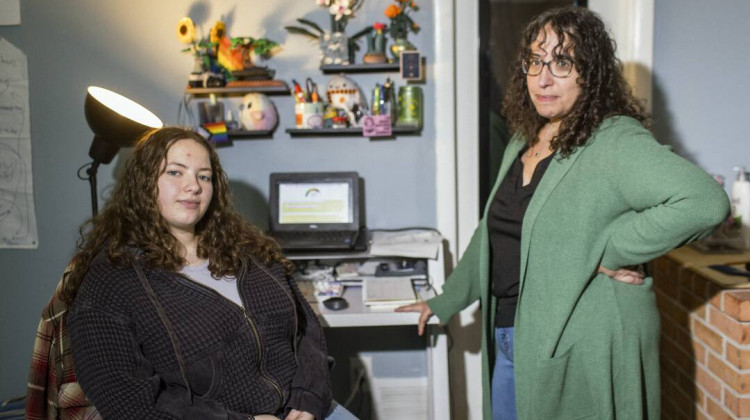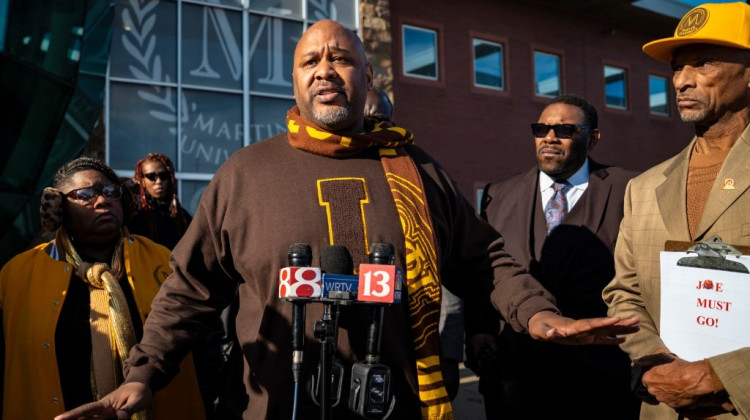
Child care has been a critical issue for working families during the pandemic, something that afterschool programs provide in addition to supplemental learning and social opportunities for kids.
Jeanie Lindsay/IPB NewsFor every one child enrolled in an afterschool program, three are still waiting to get in, according to a recent report from a national afterschool group.Advocates say that's a problem, since those programs can play a key role in addressing educational and economic inequalities further highlighted and exasperated by the pandemic.
The report from the Afterschool Alliance says access to afterschool programs in Indiana hasn't improved – in fact it's worse than it was in 2009. According to the report, more than 400,000 kids are without access to afterschool programs and support.
Lakshmi Hasanadka, CEO of the Indiana Afterschool Network, said those programs offer vital education support for kids that helps promote and continue the learning done in classrooms. They also provide safe places for children to spend time out of school, making them key in the state's economic recovery after the pandemic.
"If children are in safe, stable programs – high quality programs – then their parents can go to work and feel comfortable and confident knowing that their kids are being well taken care of," Hasanadka said.
According to a survey of parents, 80 percent say the ability to send their child to an afterschool program helps them keep their job or work more hours.
READ MORE: In Perry County, Workforce Needs Drive Expansion To Childcare, Preschool Access
But a lack of availability is only one part of the problem; the affordability and cost of providing or enrolling in those programs remain a major roadblock.
Hasanadka said students from low-wealth families consistently have less access than those in more affluent communities.
"Studies show that affluent youth experience 6,000 more hours of enrichment and learning compared to their low-income peers by the eighth grade," she said.
Hasanadka said afterschool programs will play a critical supporting role for students as many face learning losses because of the pandemic. She says they also provide important social and emotional support for students, something many have lacked during school building closures.
The COVID-19 pandemic has allowed some grant funding to support programs as they limit the number of children they can serve in person and families take on more financial challenges. But Hasanadka said providers worry about whether those programs can survive as available revenue and funding remains in short supply, and the future of funding is unclear.
Contact reporter Jeanie at jlindsa@iu.edu or follow her on Twitter at @jeanjeanielindz.
 DONATE
DONATE







 Support WFYI. We can't do it without you.
Support WFYI. We can't do it without you.